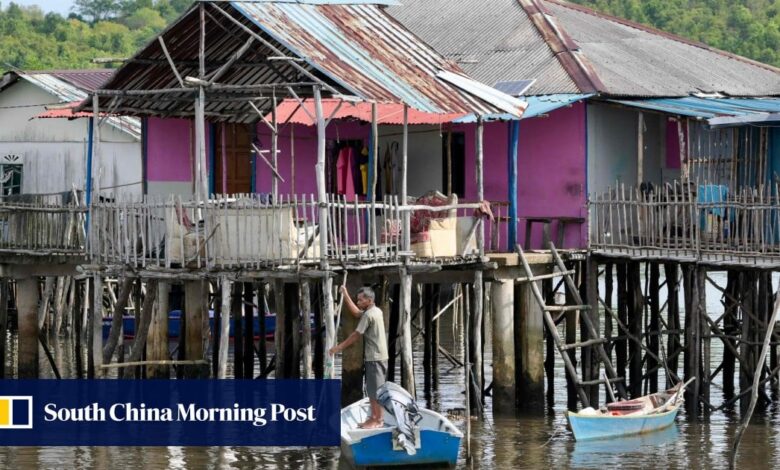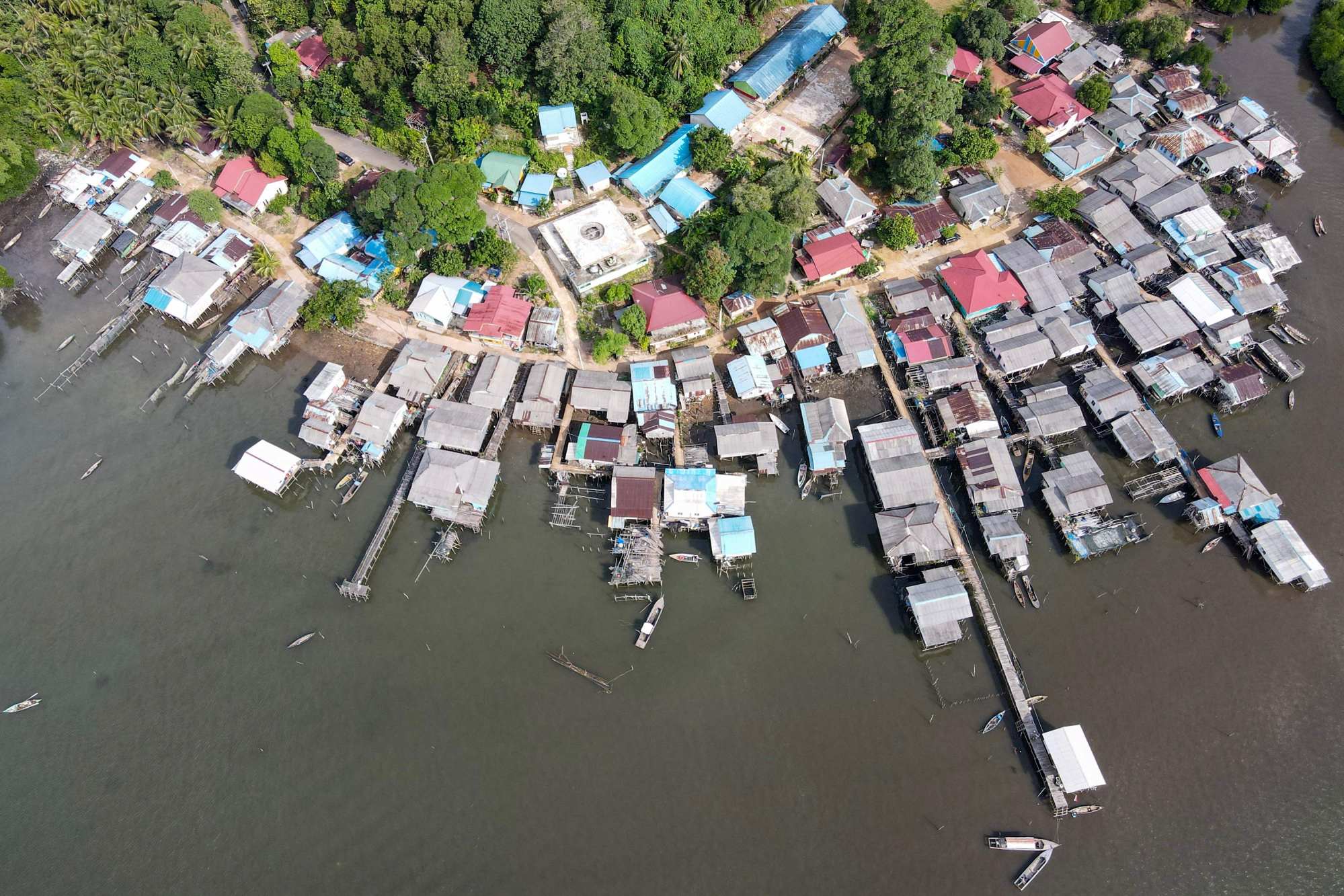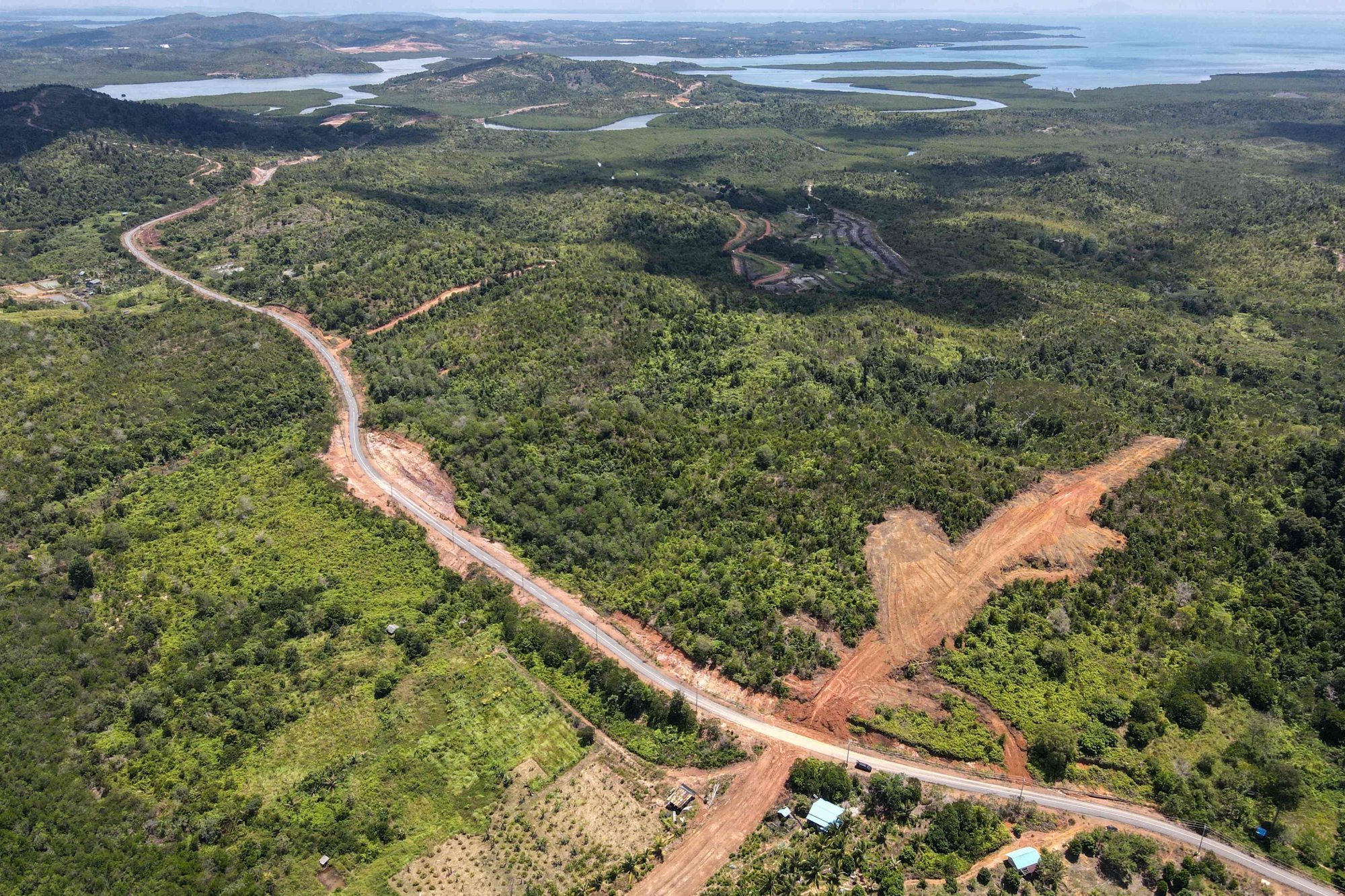Indonesian villagers from Rempang Island vow to resist Chinese-funded project, fearing ‘cultural genocide’

Xinyi Group also plans to run a solar-panel factory to be built by its Indonesian partner, PT Makmur Elok Graha – a subsidiary of a property firm owned by Indonesian-Chinese tycoon Tommy Winata.
Xinyi International Investment Limited, a subsidiary of Xinyi Group, in July signed an agreement related to the Rempang project with the Indonesian government, in the presence of Widodo, in Chengdu. The development would be Xinyi’s second such investment in Indonesia, after it built a US$700 million facility in a special economic zone in Gresik, East Java.
“I appreciate Xinyi’s investment commitment to supporting the solar-panel glass industry in Indonesia. If there is a problem in the field, we will help entirely,” Widodo said on July 29.
Indonesia blames ‘bad communication’ for eviction riots over Chinese-backed site
Indonesia blames ‘bad communication’ for eviction riots over Chinese-backed site
Progress comes with other costs, however. National Solidarity for Rempang, a coalition of eight rights and civil groups providing legal aid for residents, said villagers had encountered “excessive force” and “brutality” when they resisted being evicted.
According to Bahlil, affected residents will now be relocated to Tanjung Banon – a settlement on Rempang island about 3km away from their village – instead of Galang Island, which is some 18km away, as originally intended. But most Rempang residents have dismissed the relocation plan, saying they are staying put.

Dimas, a resident in Monggak – one of the 16 affected neighbourhoods – said that while residents support the project, they do not want it in their backyard.
“The narrative that has come out from the government so far has not been able to shake the residents’ [will] to continue living in the village,” said Dimas, who spoke to This Week in Asia using a pseudonym for fear of repercussions.
The 31-year-old said his brother was one of eight residents who were detained by local police following the September 7 clash at a bridge in Rempang. Protesters burned tyres, threw stones and hurled Molotov cocktails at the security personnel who had been deployed to persuade them to relocate. Tear gas and water cannons were used in response.
Another clash flared up four days later in front of the office of the Batam Development Authority, or BP Batam, which holds the land management rights in Rempang.
Indonesia deports 153 Chinese nationals who made US$1.3 million from love scams
Indonesia deports 153 Chinese nationals who made US$1.3 million from love scams
After being detained for 10 days, Dimas’s brother returned home but now has to report to the police regularly while a case of causing damage to public and private property is pending against him.
“My mother was worried, she didn’t eat for three days. She asked me about my brother’s condition [in jail] every day,” Dimas said, referring to the period when his brother was in detention.
According to him, residents first found out about the eviction plan in February, when two districts in Rempang were told that the government would no longer fund the development of their areas.
“There were some residents who had not gone to sea for several months. They were worried about their families at home. They are afraid that the relocation would happen,” Dimas said.

Bahlil said on Monday that 322 households in Rempang had signed up for the relocation programme, far below the government’s target of 961 households. Those who relocate have been promised: compensation of 500 square metres of land; a free house worth 120 million rupiah (US$7,690); a monthly allowance of 1.2 million rupiah per person (US$77); another 1.2 million rupiah per month until the end of next year to rent a house while their new ones are being built; and access to a fish-auction market in the new settlement.
But the offer is not what Rempang residents like Dimas are thinking about right now. “I’m focused on how to survive in the village we live in. We hope that together with the government we will protect the village,” he said.
Muhammad Arman, an advocate with the Indigenous Peoples’ Alliances of the Archipelago, or Aman, urged the government to cancel the project to prevent yet another “cultural genocide”, this time against the Rempang Malay community on the island.
The Malay population who live on Rempang Island, including Galang and Bulang, has existed for more than 300 years
In a letter to the Indonesian government last month, Azlaini Agus, a Riau Malay community leader, wrote about the rich history of residents living on Rempang and its neighbouring islands of Galang and Bulang. She says the residents are descendants of soldiers of the Riau-Lingga Sultanate, who had lived on the islands since 1720 and won two wars against the Dutch in the 1780s.
“The Malay population who live on Rempang Island, including Galang and Bulang, has existed for more than 300 years, living on the island and maintaining the values and traditions of their ancestors to this day,” she said.
Between January and July, 22 conflicts have flared up between residents and the authorities in areas across Indonesia where economic projects are being developed from East Kalimantan to Papua, Arman said.
How are China’s belt and road plans for Southeast Asia working out, 10 years on?
How are China’s belt and road plans for Southeast Asia working out, 10 years on?
Edy Wahid, an advocate with the Indonesian Legal Aid Foundation, said the Indonesian government’s position that Chinese investment would bring high economic growth and employment is an “illusory narrative”.
“We found that there is social and economic inequality and extreme poverty in the areas where there are Chinese investments, such as Morowali. This could happen in Rempang, too,” he said.

